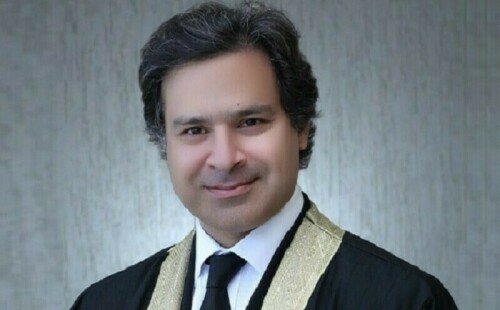ISLAMABAD: Setting a new deadline for the appointment of a chief election commissioner (CEC), a visibly unhappy Supreme Court on Thursday rejected a request for an additional three months to complete the appointment process.
The request – made by Leader of the Opposition in the National Assembly Khursheed Ahmed Shah through a miscellaneous application – was turned down as the court warned once again that it would withdraw the apex court judge who was currently serving as acting CEC if the appointment was not made by Nov 13.
Also read: Khursheed seeks three months for CEC appointment
The court issued the order after an earlier court-given deadline expired on Oct 28. Thursday’s extension was the second granted after the first time the court extended the time limit from Oct 14 to 28.
But before the expiry of the first deadline, opposition leader Khursheed Shah, who is a constitutional stakeholder in the appointment of the CEC, pleaded that a meaningful consensus would require more time.
Rejects Khursheed Shah’s request for more time for consultation
On Thursday, a three-judge Supreme Court bench, headed by Chief Justice Nasir-ul-Mulk, also turned down an ECP request asking for nine months to complete the process of delimitation in Punjab and Sindh so that the long-awaited local government elections could be held by the court ordained deadline of Nov 15.
The court observed that it would consider the ECP’s request for more time after perusing the reports furnished by the commission, outlining measures taken to conduct local government elections.
Soon after the new date was announced, Khursheed Shah issued a statement expressing his regret over the government’s decision to distance itself from his application asking for more time, which he said had been filed with the government’s consent.
However, Mr Shah appeared confident that a CEC would be appointed before the court-given deadline expired and would be made in consultation with all parties, provided the prime minister forwards three names for consideration as soon as possible.
Currently, Supreme Court’s Justice Anwar Zaheer Jamali is serving as acting CEC. Justice Jamali replaced the current chief justice as acting head of the ECP on July 23 to become the third acting CEC in less than a year.
Before him, both former Chief Justice Tassaduq Hussain Jillani and Chief Justice Nasirul Mulk had briefly served as acting CEC after Fakhruddin G. Ebrahim resigned on July 30, 2013, as the 13th CEC. His resignation came soon after the Supreme Court verdict ordering an amendment to the schedule for presidential elections on a petition by PML-N legislator without hearing other parties – a decision Mr Ebrahim considered an encroachment on the ECP’s domain.
Appearing on behalf of Khursheed Shah, Aitzaz Ahsan asked the bench to grant more time. He said the CEC’s appointment was being delayed by the uncertainty that had been prevailing inside and outside parliament over the last couple of months. The government, he said, was also consulting all political stakeholders on the issue of the CEC’s appointment and a 33-member parliamentary committee was already working on electoral reforms.
But the court was not amused. The chief justice observed that the appointment of CEC only required consultation between two stakeholders: the prime minister and the leader of the opposition.
Barrister Ahsan explained that the process was being carried out in such a way that nobody was able to point fingers at future CECs and contended that the office would gain significance once electoral reforms were completed.
The court reminded him that the office had been vacant for the last one year and a Supreme Court judge was currently serving as the interim commissioner. As a result, not only could the ECP not develop permanent policy, but routine work at the Supreme Court was also being affected.
Why was the consultation process not completed when the Supreme Court had ordered a CEC to be appointed last February, the chief justice asked, observing that the electoral reform committee, constituted in July, could take years to come up with a reform package.
When the court turned towards Attorney General Salman Aslam Butt and asked what instructions he had received from the government, he simply told the judges that he had received no instructions on the matter.
The court then postponed further proceedings until Dec 1.
Published in Dawn, October 30th, 2014














































